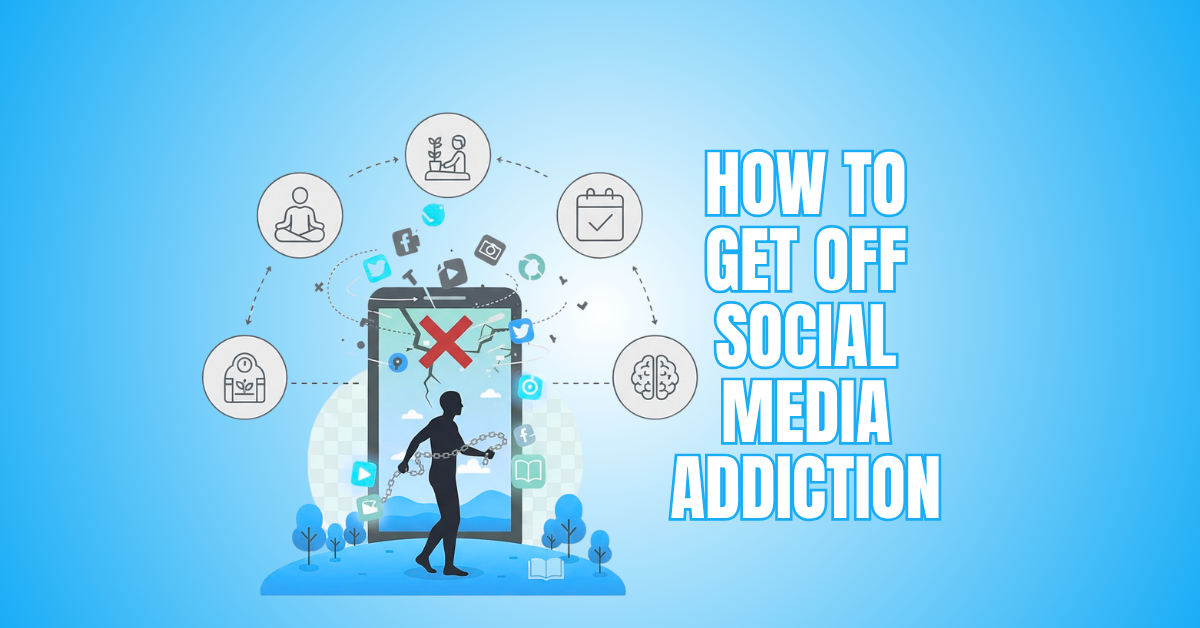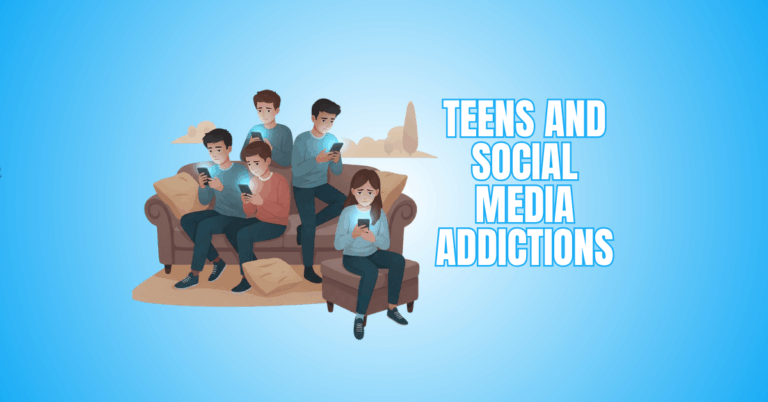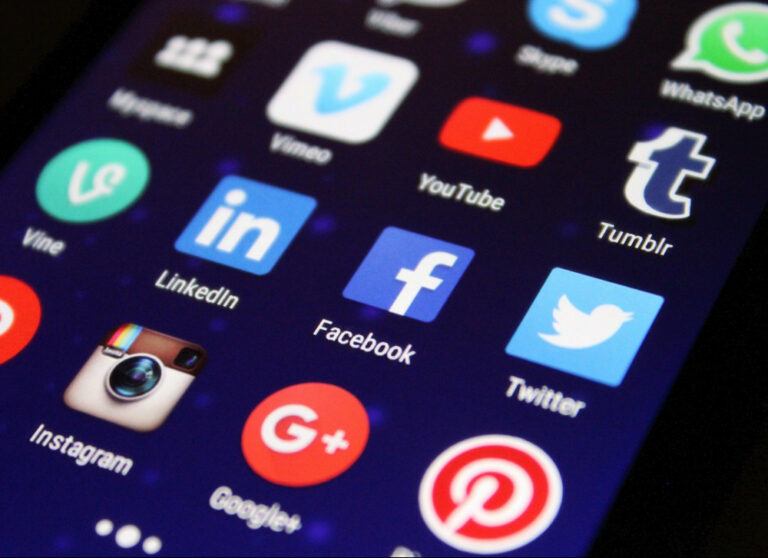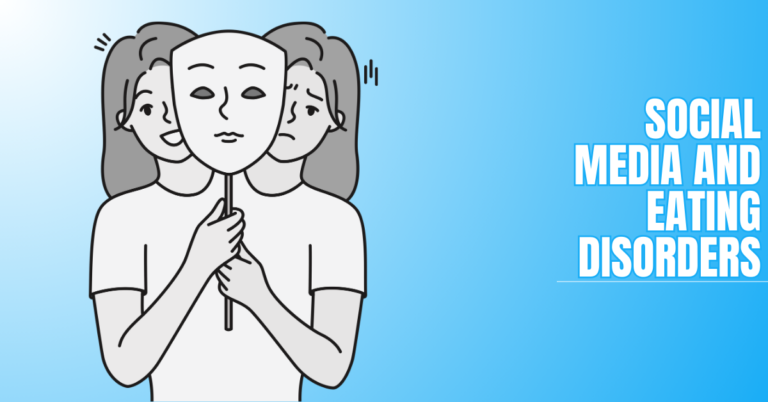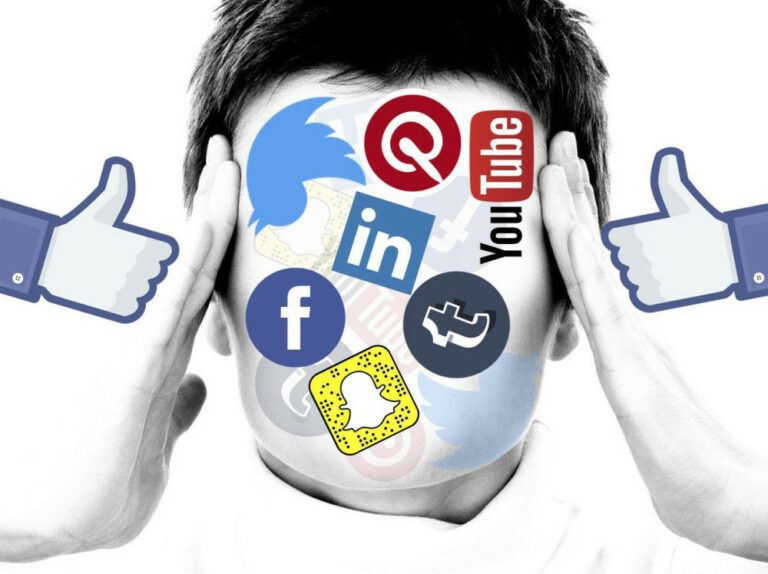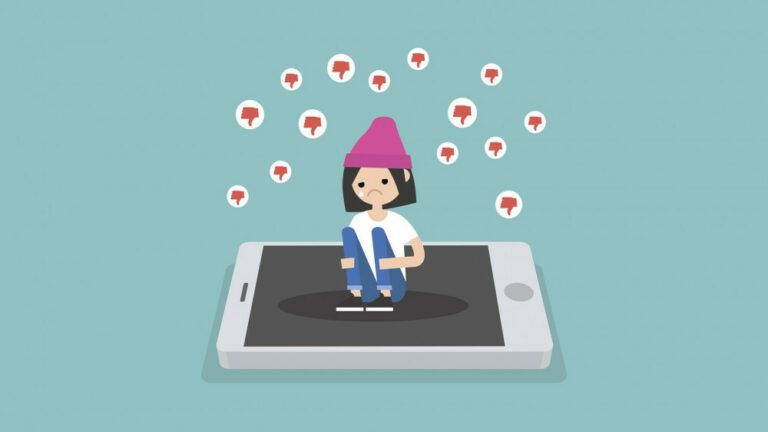How To Get Off Social Media Addiction
How to get off social media addiction starts with understanding how digital habits shape your daily life. As constant connectivity becomes overwhelming, many people are searching for practical ways to reclaim balance and break free from unhealthy online patterns.
Social media is deeply woven into our routines, but its continuous pull can quietly lead to stress, distraction, and dependency.
If you find yourself scrolling without thinking, feeling anxious when you’re offline, or struggling to stay present, you’re not alone — these behaviours are increasingly common.
Learning how to get off social media addiction isn’t about quitting everything overnight. It’s about creating healthier boundaries, rebuilding intention, and reconnecting with your offline world in a way that feels empowering and sustainable.
In this guide, we’ll explore gentle and effective strategies to help you regain control of your digital life, reduce overwhelm, and restore your sense of well-being.
Why Is Social Media Addictive?
1. The Endless Scroll
Social media platforms are designed to keep users engaged in their ecosystem for as long as possible.
The infinite scroll feature, where new content seamlessly replaces old, creates a hypnotic rhythm that encourages users to keep swiping or scrolling.
The anticipation of discovering something new with each finger flick stimulates the brain's reward center, fostering a habit-forming behaviour.
2. Instant Gratification
One of the primary reasons social media is addictive lies in its ability to provide instant gratification.
Likes, comments, and shares trigger dopamine, the brain's “feel-good” neurotransmitter. The unpredictability of these rewards – not knowing when a notification will pop up – enhances the pleasure, making social media interactions akin to a slot machine that keeps users hooked.
3. Fear of Missing Out (FOMO)
The constant updates from friends, celebrities, and influencers create a sense of urgency to stay connected and be in the know.
The fear of missing out on important events or trends compels users to check their feeds repeatedly, reinforcing the addictive cycle.
4. Social Validation
Humans are inherently social creatures, and social media caters to our innate need for validation. The quantifiable metrics of likes, followers, and comments serve as a measure of social acceptance.
Pursuing validation through these metrics can become a powerful motivator, driving users to seek continuous engagement with the platform.
5. Dopamine Feedback Loop
The intermittent rewards and social validation on social media create a dopamine feedback loop. Dopamine, associated with pleasure and reinforcement, strengthens the neural pathways related to social media use.
This reinforcement mechanism makes the behaviour more habitual, contributing to the addictive nature of these platforms.
6. Personalized Content Algorithms
Social media platforms employ sophisticated algorithms to curate content tailored to individual preferences. The personalized nature of these feeds keeps users engaged by presenting content aligned with their interests, preferences, and online behaviour. This customization enhances the user experience and deepens the connection, fostering addiction.
How To Get Off Social Media Addiction
Social media has become an essential aspect of our everyday lives in the age of continual connectedness. However, for many, this digital tether can evolve into a source of stress, hindering personal growth and real-life interactions.
If you find yourself pondering the question, “How to get off social media addiction?” – you're not alone. This guide will explore practical strategies to reclaim control over digital habits, leading to a more balanced and fulfilling lifestyle.
1. Self-Reflection
Embarking on the journey to liberate oneself from social media requires a moment of profound self-reflection. Take a pause and ponder: Why the inclination to break free?
Scrutinize the impact of social media on your life, exploring stressors, productivity pitfalls, and potential hindrances to face-to-face interactions. Are these virtual connections enhancing or encumbering your well-being?
This reflective exercise is pivotal, serving as the compass for your digital detox. Unearth the root causes with an unbiased lens.
It could be the constant comparison-inducing stress, the subtle productivity drains, or the screen-mediated barrier to genuine human connection. Pinpointing these triggers enables the formulation of clear and personalized goals.
In this process of self-discovery, honesty is paramount. Acknowledge the nuances of your relationship with social media, discerning its role in your daily struggles.
Only through this genuine introspection can you set meaningful and achievable goals, laying the foundation for a purposeful reduction or elimination of social media use.

2. Set Realistic Goals
Embarking on the journey to overcome social media addiction requires a pragmatic approach. At the same time, an enticing notion of going cold turkey may prove unrealistic for many individuals.
Instead, the key lies in setting realistic and achievable goals. Begin by consciously designating specific time slots for social media engagement throughout the day.
This deliberate allocation allows for a measured reduction in usage, acting as a structured starting point. As you acclimate to this schedule, gradually decrease the frequency of these designated periods.
This incremental adjustment ensures a smoother transition, making the process more attainable for individuals seeking to curb their social media habits.
By setting achievable goals, you create a sustainable framework for change. This method promotes a healthier relationship with social media and acknowledges the journey's individuality, recognizing that progress is a gradual, personalized process.
Wealthy Affiliate – Mini Review (2025)
If you’ve ever thought about turning your blog, passion, or niche into an online business,
Wealthy Affiliate (WA) is one of the most beginner-friendly platforms I’ve used.
It combines step-by-step training, website hosting, SEO research tools,
and an active community all in one place.
What I like most: you can start free (no credit card needed),
explore lessons, test the tools, and connect with other entrepreneurs
before upgrading. WA isn’t a “get rich quick” scheme — it’s a platform where success comes
from consistent effort and applying what you learn.
3. Disable Notifications
In the quest to understand “how to get off social media addiction,” a pivotal step involves taking charge of the constant interruptions brought about by social media notifications.
These platforms are strategically designed to maintain user engagement through a barrage of alerts, perpetuating the addictive cycle.
Regaining control by deliberately turning off non-essential notifications to break free is imperative. By reducing these distractions, individuals create a buffer against the constant digital influx, providing room to focus on other facets of life.
This intentional disconnection is instrumental in reclaiming one's time and attention. The absence of intrusive alerts allows for a more serene and focused daily experience, promoting a sense of autonomy over digital habits.
Successfully navigating the path to overcoming social media addiction entails recognizing the power dynamics at play and making conscious decisions to counteract them.
Disabling notifications becomes a practical strategy, fostering an environment conducive to personal growth and a healthier balance between online and offline life.
In this journey of self-discovery and intentional disconnection, the choice to control notifications emerges as a pivotal move toward breaking the chains of social media addiction.
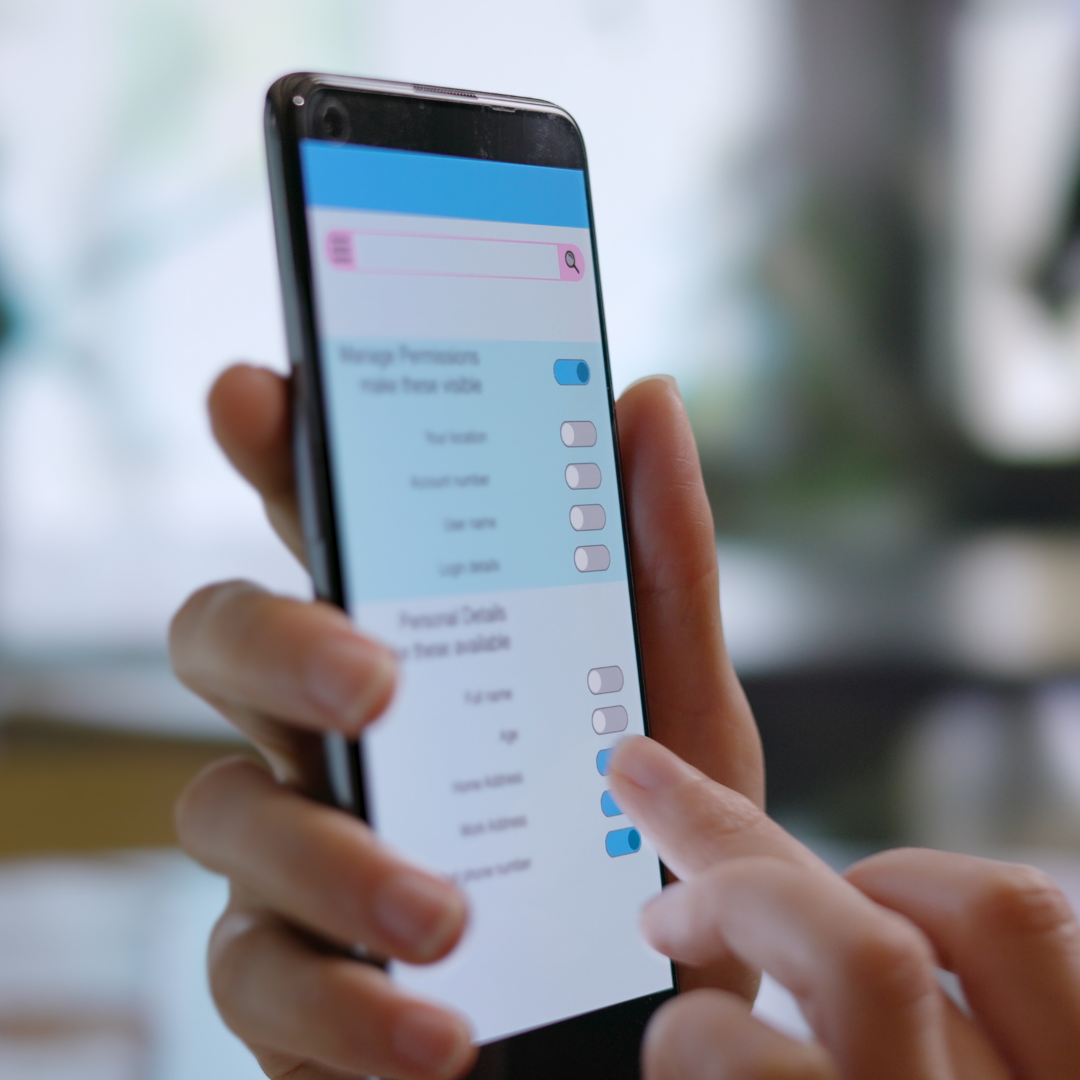
4. Create Tech-Free Zones
Consider creating designated tech-free zones daily to balance the digital and real worlds harmoniously. These zones serve as sanctuaries, shielding precious moments from the constant hum of technology, including the allure of social media.
Establishing these intentional spaces imposes a much-needed pause on the continuous digital chatter, whether it's the sacred time during meals, the tranquil moments before bedtime, or certain rooms within your abode.
By delineating these technology-free realms, you give yourself the gift of undivided attention to the present, fostering genuine connections and mindfulness.
Setting physical boundaries underscores the importance of separating online and offline activities and cultivating a healthier, more mindful lifestyle.
Embracing such intentional pauses rejuvenates your mind and enhances the quality of your offline experiences, contributing to a more balanced and fulfilling daily existence.
5. Explore Offline Hobbies
Reconnect with the simplicity and joy of offline pursuits to liberate yourself from the grip of social media. Delve into the timeless pleasure of reading, allowing the tactile sensation of paper and the immersive world of words to captivate your senses.
Engage in stimulating exercises that nourish body and mind, breaking free from the digital monotony. Unleash your creativity through painting, embracing the tactile experience of brushes on canvas. The strokes and colours become an expressive outlet, untethered from the pixels on a screen.
Spend quality time with loved ones, building sincere relationships that go beyond the boundaries of online communication. The laughter, shared moments, and emotional bonds weave a tapestry of fulfillment.
These offline activities, devoid of screens, disrupt the social media cycle and infuse vitality into your life. Rediscover the beauty of tangible experiences, savouring each moment without the digital filter.
Embracing these hobbies transforms your leisure time into a rich tapestry of offline delights, offering a respite from the constant digital hum and nurturing a more balanced, wholesome existence.

6. Connect Face-to-Face
In virtual connectivity, it's essential to remember that digital interactions should serve as a supplement, not a substitute, for genuine face-to-face connections.
Social media platforms facilitate communication with friends and family, offering a convenient means of staying connected.
However, the true essence of relationships lies in the offline world. Meaningful conversations and shared experiences in the physical realm create lasting memories that transcend the virtual landscape.
Face-to-face interactions nurture authentic connections, fostering a closeness that technology cannot fully replicate.
The emotional depth of a genuine smile, the warmth of a hug, or the nuances of in-person conversation go beyond the confines of digital communication.
In prioritizing real-life moments, the constant need for online validation diminishes, replaced by a richer, more fulfilling connection with the people around us.
By balancing digital and personal interactions, we can cultivate more meaningful relationships and a healthier, more holistic approach to social connectivity.
7. Digital Detox Periods
To break free from social media addiction, incorporate strategic digital detox periods. Take short breaks throughout the day, redirecting focus toward personal growth, hobbies, and meaningful relationships.
These moments act as a reset button for the mind, fostering a healthier balance. For a more profound impact, engage in longer digital detoxes, providing the opportunity to reassess priorities.
Successfully navigating how to get off social media addiction involves intentional disconnection and reflection. Use these breaks to evaluate the impact of social media on your life and rediscover the value of offline experiences.
By integrating these detox periods, individuals can cultivate a more balanced relationship with technology, enhancing well-being and a more fulfilling lifestyle.
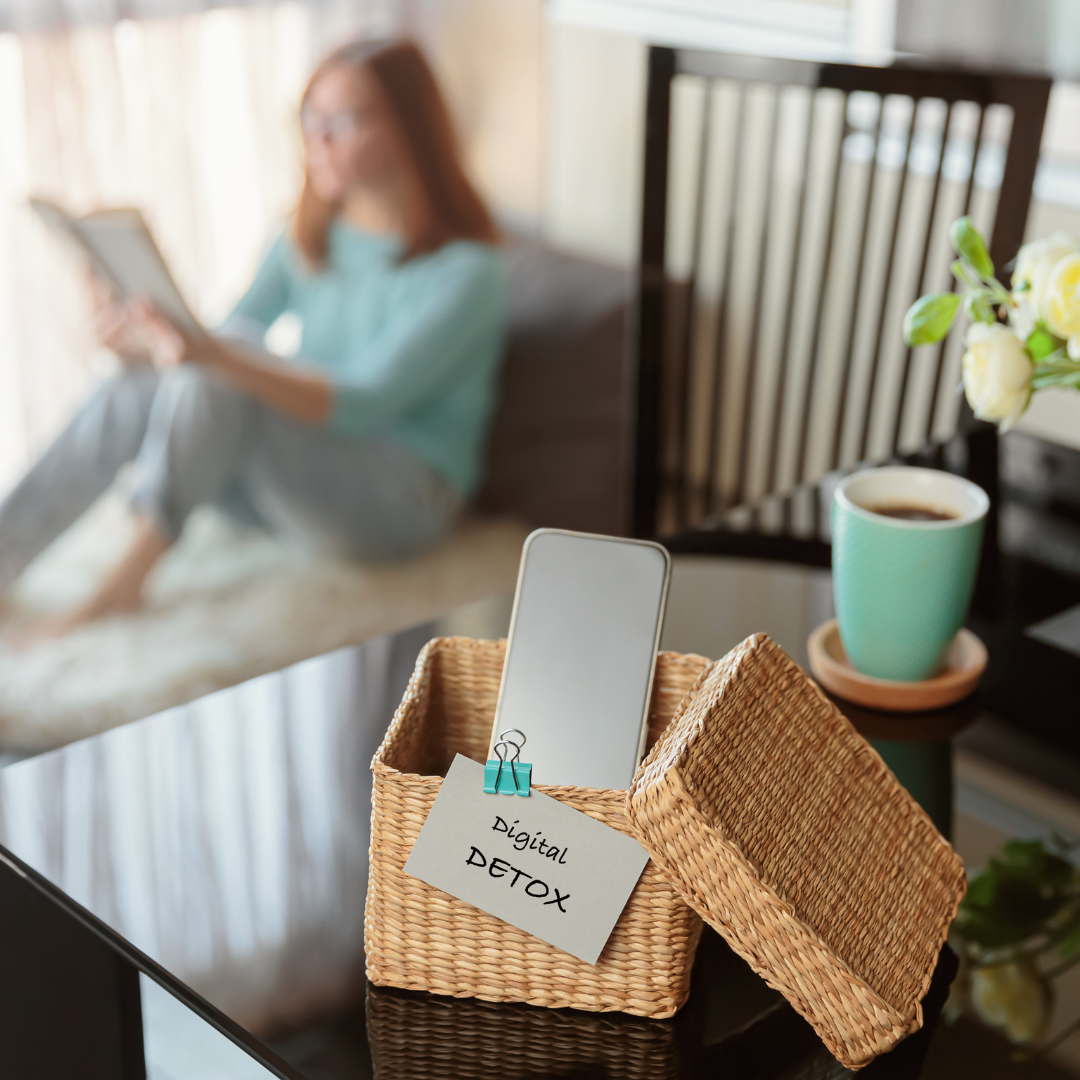
How Do I Stop Myself From Using Too Much Social Media?
Firstly, self-awareness is key. Take a moment to reflect on how social media impacts your daily life. Are you using it as a tool for connection, or has it become a time-consuming habit?
Understanding your motivations will pave the way for effective changes. Setting realistic goals is crucial in breaking the cycle. Rather than attempting to quit social media altogether, consider gradually reducing your usage.
Start by allocating specific times for daily social media check-ins, gradually decreasing the frequency. The constant notifications from social media platforms can be a significant source of distraction.
Regain control by turning off non-essential notifications. This small adjustment can help you reclaim focus and minimize the constant pull toward your device.
Create tech-free zones in your daily routine. Designate specific times or areas where the use of social media is strictly off-limits.
This can be during meals, before bedtime, or in specific rooms, allowing you to establish physical boundaries that promote a healthier balance.
Exploring offline activities is a powerful antidote to excessive social media use. Reconnect with hobbies, exercise, or spend quality time with friends and family.
Engaging in activities that don't involve a screen breaks the digital cycle and enhances overall well-being. Facilitate face-to-face interactions. While online connections have their merits, real-life relationships are equally important.
Make a conscious effort to engage with others in person, fostering meaningful connections beyond social media's confines.
Consider implementing digital detox periods. Take short breaks or more extended periods away from social media to reset your mindset.
Use this time to focus on personal growth, pursue offline interests, and reassess your priorities without the constant influence of online interactions.
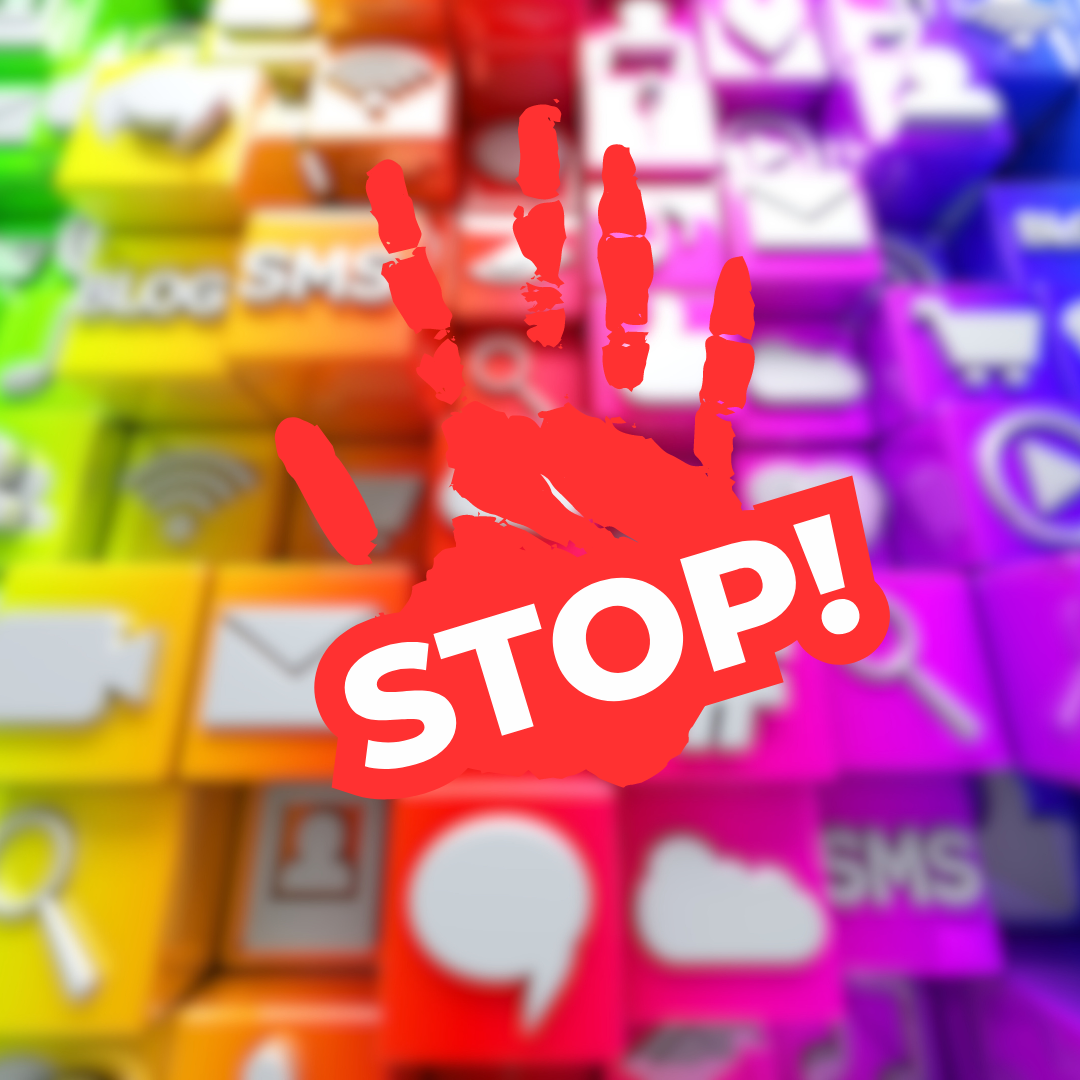
How Can I Improve My Healthy Social Habits?
Improving healthy social habits is a gradual process that involves mindfulness and intentional choices.
Begin by cultivating self-awareness to understand your current social behaviours. Take note of positive interactions that uplift your well-being and identify aspects needing improvement.
Prioritize quality over quantity in your social connections. Nurture relationships with those who contribute positively to your life and well-being. This not only strengthens your connections but also fosters a sense of community.
Set the limit to maintain a healthy balance between socializing and personal space-time.
Recognize when to step back, recharge, and focus on self-care. Balance is key to preventing burnout and fostering sustainable social habits.
Embrace diversity in your social circles. Interact with people from various backgrounds, experiences, and perspectives. This broadens your horizons, encourages empathy, and enriches your social interactions.
Lastly, practice gratitude within your social relationships. Remember, the journey to improved social habits is a continuous, self-reflective process that unfolds with patience and deliberate effort.
How Can Parents Ensure Their Children’s Mindful Social Media Use?
Parents must foster mindful usage in a digital age where social media is pivotal in children's lives. Parents can adopt several strategies to ensure a healthy relationship with social platforms.
Firstly, open communication is key. Establishing a non-judgmental space where children feel comfortable discussing their online experiences helps parents understand their perspectives and concerns.
Additionally, setting clear boundaries on screen time encourages a balanced lifestyle. Allot specific time slots for social media use, ensuring it doesn't interfere with essential activities like homework, meals, or sleep.
Moreover, leading by example greatly influences children's behaviour. Demonstrating mindful social media use by limiting personal screen time and prioritizing face-to-face interactions encourages responsible habits.
Emphasizing the importance of online privacy and the potential impact of digital footprints educates children about the significance of responsible online behaviour.
Finally, staying informed about the latest social media trends and platforms allows parents to guide their children through potential pitfalls.
Parents can play a crucial role in promoting mindful social media use among the younger generation by actively engaging in their children's online world and fostering open communication.

Why Is Healthy Use Of Social Media Important For All Of Us?
Social media has become integral to daily life in our interconnected world. The way we engage with online platforms can significantly impact our well-being. A healthy use of social media is crucial for several reasons.
Firstly, social media fosters connectivity and community. It enables us to maintain relationships with our loved ones, regardless of geographical distances. Meaningful interactions on these platforms contribute to a sense of belonging and support.
Secondly, well-managed social media usage promotes information sharing and awareness. It is a powerful tool for disseminating valuable information, fostering learning, and staying updated on current events.
Furthermore, social media is a great place to express creativity and express yourself. Individuals can showcase their talents, share experiences, and find like-minded communities, contributing to personal growth and fulfillment.
However, it's essential to strike a balance. Excessive use can lead to negative consequences, such as decreased productivity, stress, and mental health issues.
Establishing healthy boundaries, being mindful of content consumption, and prioritizing real-life interactions are key to reaping the benefits of social media without compromising overall well-being.
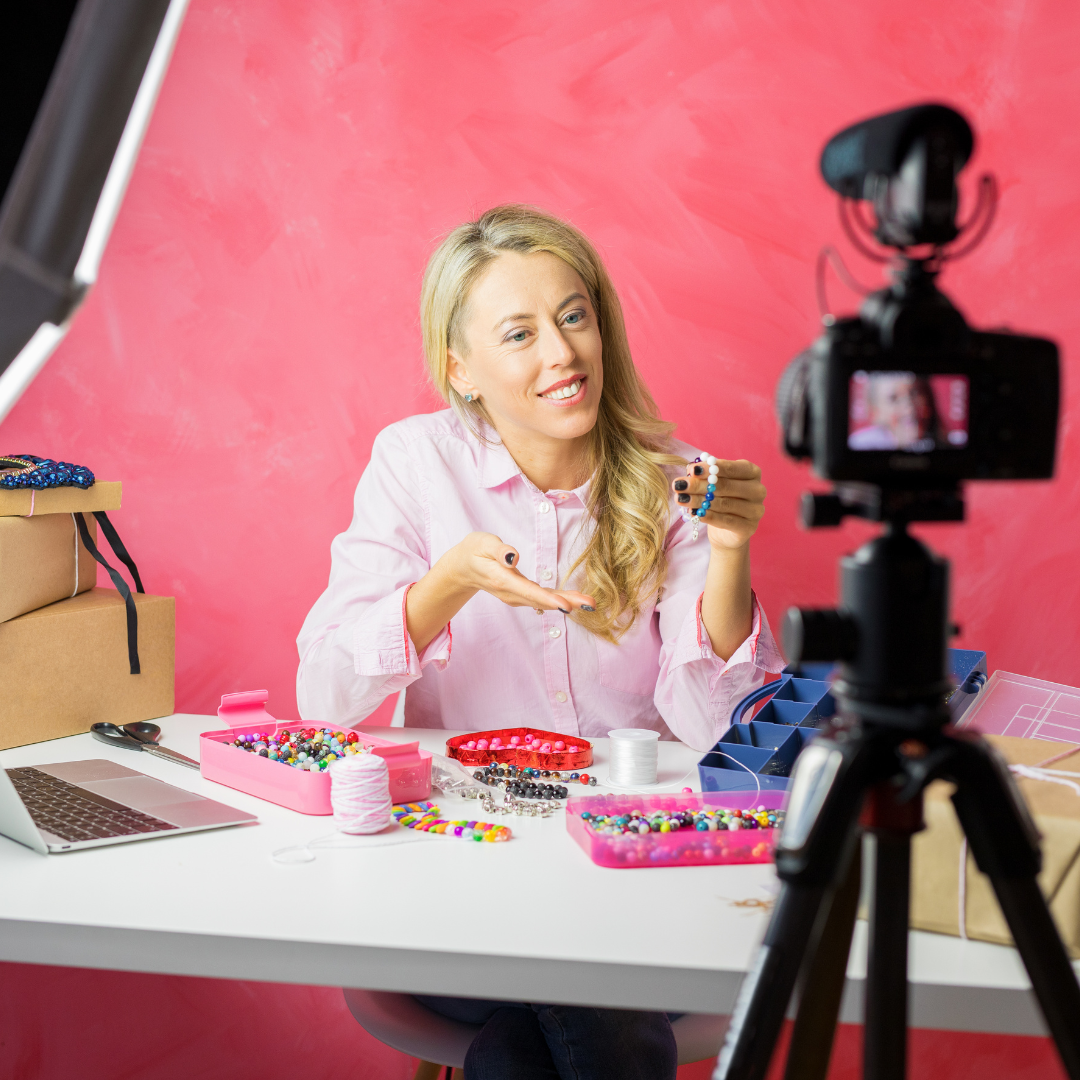
Conclusion
In pursuing a balanced and mindful relationship with social media, the significance of a deliberate social media detox cannot be overstated.
Studies show that the benefits are far-reaching, encompassing heightened productivity, improved mental well-being, and increased self-awareness. Navigating the digital landscape demands a gradual, mindful process rooted in intentional choices.
For parents ushering their children through the digital age, pivotal aspects include open communication, setting boundaries, and leading by example.
Central to all is the importance of understanding ‘how to get off social media addiction.' Striking a healthy equilibrium in social media usage benefits connectivity and information sharing; it is integral to personal growth and fostering a sense of community.
Embracing a mindful approach empowers us to leverage the positive facets of social media, safeguard our well-being, and nurture meaningful connections in the real world.
I trust you enjoyed this article on How to Get Off Social Media Addiction. Please stay tuned for more insightful blogs on affiliate marketing, online business, and working from anywhere in the world.
Take care!
— JeannetteZ 🌍✨
💬 Your Opinion Is Important To Me
Do you have thoughts, ideas, or questions? I’d love to hear from you. Please leave your comments below or email me directly at Jeannette@WorkFromAnywhereInTheWorld.com.
📚 More Work From Anywhere Reads
🚀 Ready to Build a Business You Can Run from Home
Or from Anywhere in the World?
Imagine creating income on your terms — from home, a cozy café, or wherever life takes you.
With the right tools, training, and community support, it’s entirely possible.
Start your own online business for free — no credit card needed.
Disclosure
This post may contain affiliate links. As an Amazon Associate and participant in other affiliate programs, I earn from qualifying purchases at no extra cost to you. Please read my full affiliate disclosure.

